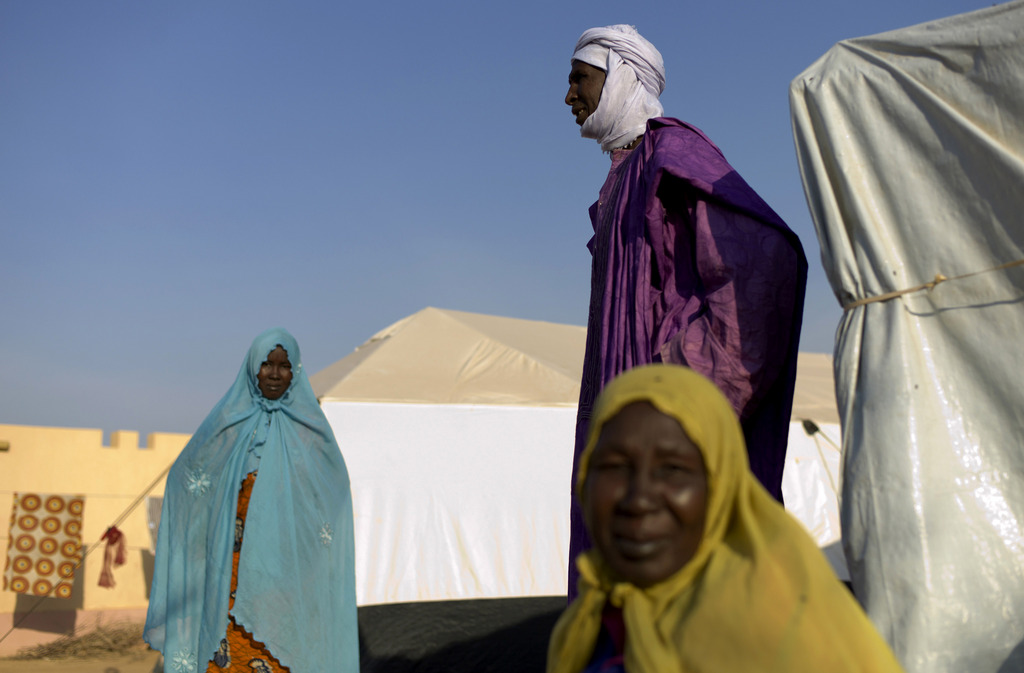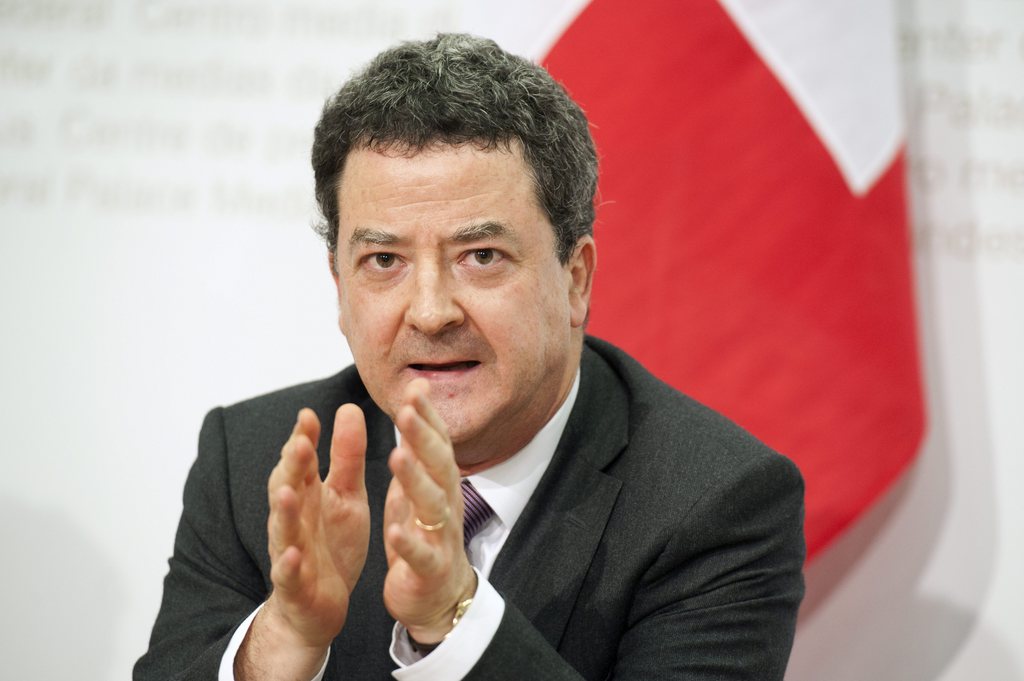
ICRC fears spread of Mali conflict

The current fighting in Mali could spark conflicts in neighbouring countries, as refugees flooding across the borders heighten existing tensions, International Committee of the Red Cross (ICRC) President Peter Maurer has told swissinfo.ch at the WEF.
The whole sub-Saharan region has witnessed a surge in weaponry and exacerbated political tensions since the Arab Spring uprisings in North Africa two years ago. Countries such as Nigeria, Mauritania, Burkina Faso and Niger are all at risk.
Maurer, who was attending the World Economic Forum in Davos, also spoke about the current situation in Syria.
swissinfo.ch: The Arab Spring uprisings in 2010 were once seen as a signal of better times for the region. But you are concerned that the situation is now turning sour?
Peter Maurer: It does not come as any great surprise that the changes have not followed a constantly positive path, but that they have also brought a lot of problems. Political transformation and power vacuums also often result in conflict and tension.
Problems related to the Arab Spring have emerged in countries such as Libya, and particularly the sub-Saharan region. The whole sub-Saharan region is being weaponised and conflicts are emerging, which is of great concern.
The ICRC will have to focus more time, energy and resources on the region this year because I would expect other conflicts to emerge.
swissinfo.ch: At the moment we are seeing conflict in Mali. What other countries concern you?
P.M.: Vulnerable countries such as Niger, Mauritania, Burkina Faso and Nigeria have all been exposed to the direct consequences of [refugee] displacements from Mali.
These countries are experiencing more tensions than before the Mali conflict. They have been very clear in articulating the increasing burden being placed on their economies and political systems by the tens of thousands of people being displaced from Mali.
We expect to be faced with new conflicts in some form or another.
swissinfo.ch: What is the current situation on the ground in Mali?
P.M.: It is very difficult to say how the pattern of conflict will evolve. Some of the fighters appear to be simply disappearing into the desert. We do not know if there will be big battles.
Our teams are in place in Mopti and other regions and we try to go into areas where fighting has recently taken place. The indications are that while people have been displaced by the rising violence, this is not a mass displacement. We also see wounded arriving, but not in huge numbers.

More
Switzerland continues to support mediation in Mali
swissinfo.ch: Syria is also a hotspot country for the ICRC. What is the situation at the moment?
P.M.: We are confronted with an expansion of warfare and of armed violence. We see a deepening humanitarian crisis, and a lot of needs emerging for the population wherever we go.
At the middle of last year the conflict was still quite sporadic, but now it has become all encompassing. We also see group fighting that has religious or ethnic connotations that does not really follow the same lines of the original friction.
Last year we were able to get clean water to around 15 million Syrians and we distributed food to almost three million. Having said that, we need to do more, but the security situation does not give us the necessary access to people.
swissinfo.ch: What positive stories has ICRC witnessed from the Arab Spring?
P.M.: We do see a lot of positive developments as well. For example, we have been encouraged by developments in Tunisia.
But our work does not end when democratic transformation takes place.
We suddenly have access to Libyan prisons, so we now have a huge operation to improve conditions for prisoners. This is different work than before, but it has positive connotations for us.
It is a double edged sword – it’s a reshaping of what we offer rather than an end to our work.

In compliance with the JTI standards
More: SWI swissinfo.ch certified by the Journalism Trust Initiative


























You can find an overview of ongoing debates with our journalists here . Please join us!
If you want to start a conversation about a topic raised in this article or want to report factual errors, email us at english@swissinfo.ch.